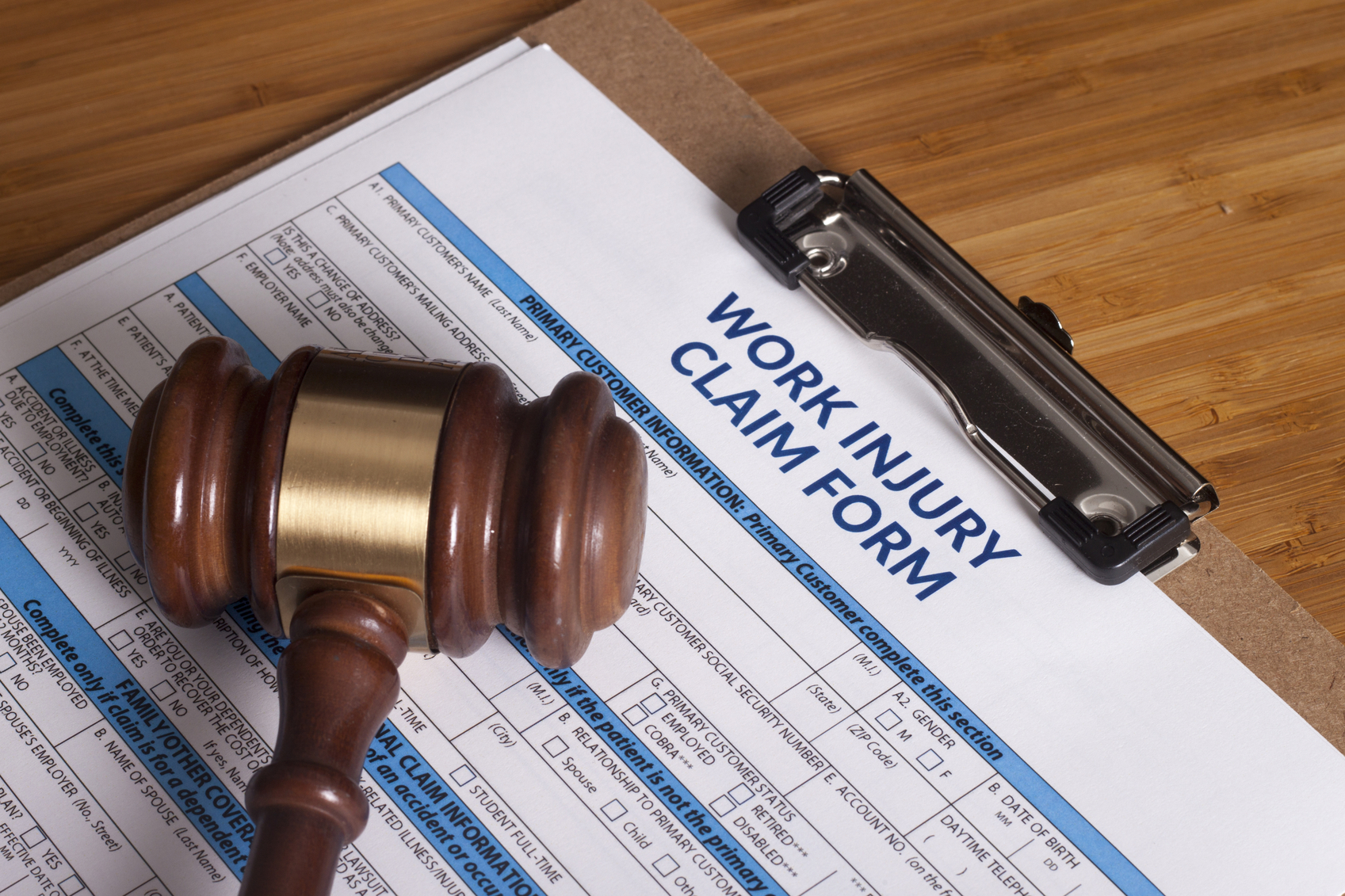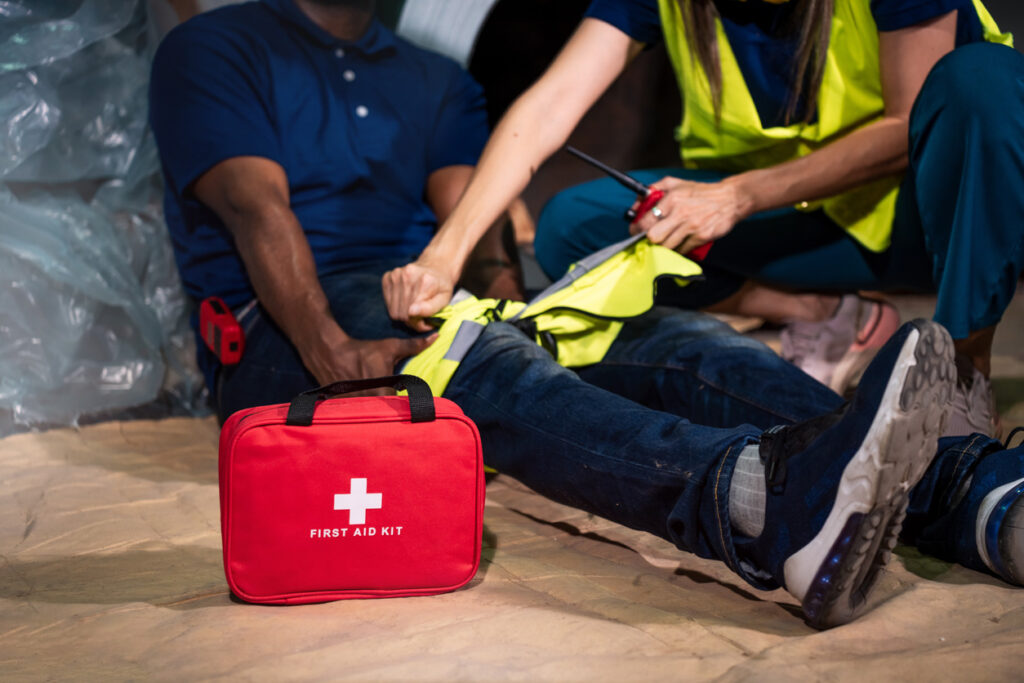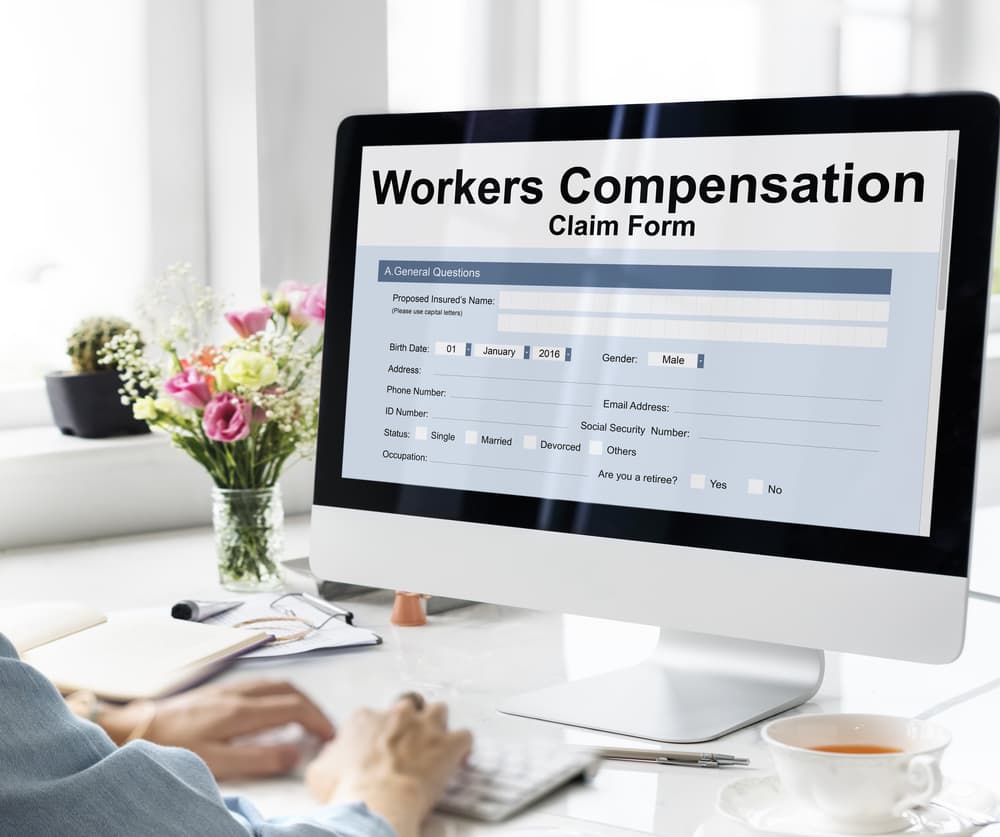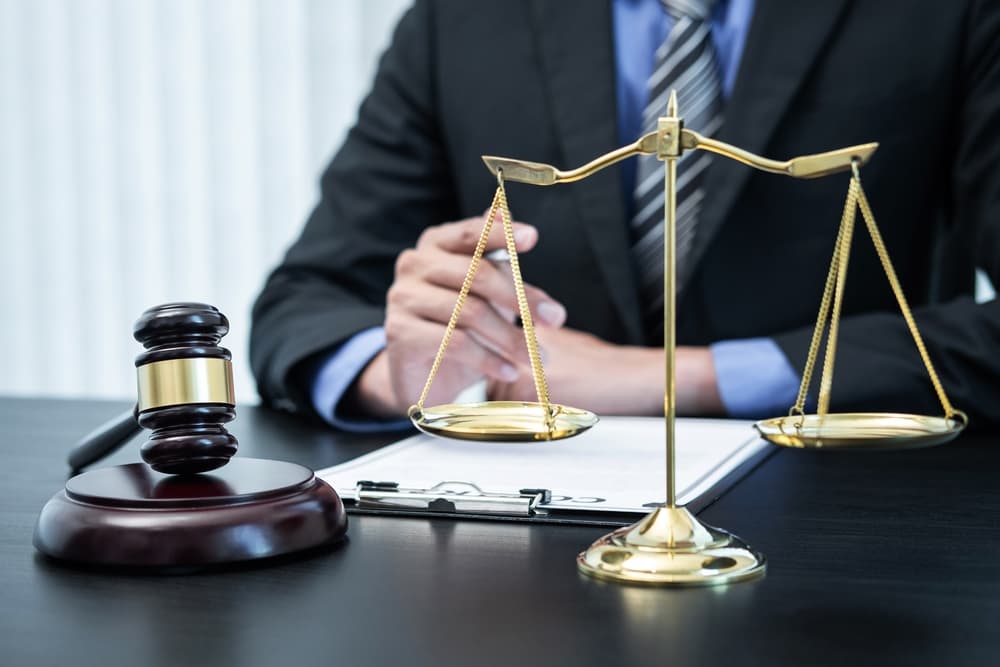Stephen Hasner | Workers' Compensation | March 28, 2025

When a worker suffers an injury or illness due to their job, workers’ compensation provides financial and medical benefits. In Georgia, workers’ compensation is a vital safety net, ensuring employees receive necessary medical care and earnings replacement while they recover.
Injured workers and their families must understand how the system works, what benefits are available, and how to navigate the claims process. If your occupation causes an injury, seek legal assistance without hesitation. A skilled attorney can help explore the intricacies of Georgia’s workers’ compensation system, guiding you through your rights and options.
What is Workers’ Compensation Insurance, and How Does it Work?
Workers’ compensation, or “workers’ comp,” is a state-mandated insurance program that benefits employees who suffer job-related injuries or illnesses. Most businesses with three or more employees in Georgia must carry workers’ compensation insurance. This no-fault system ensures that injured workers receive compensation without proving employer negligence.
When employees sustain a workplace injury, they must report it to their employer, who informs their workers’ compensation insurance carrier. The insurer assesses the claim and determines the benefits the worker qualifies for. If approved, the injured employee receives coverage for medical expenses, earnings replacement, and other necessary support.
Workers’ compensation insurance is advantageous for both employees and employers. It offers a simpler path to obtaining necessary compensation and benefits after an injury, while employers typically avoid liability for their employees’ harm.
Benefits Available Through Georgia Workers’ Compensation
Georgia workers’ compensation insurance offers various benefits to employees injured during their occupation. The most notable benefits include the following:
Medical Benefits
Workers’ compensation covers all reasonable and necessary medical expenses related to a work injury or illness. This includes doctor visits, hospital stays, surgeries, prescription medications, physical therapy, and rehabilitation. Injured employees must seek treatment from an authorized physician their insurer provides.
Temporary Partial Disability Benefits (TPD)
When an injured employee can work in a limited capacity, TPD benefits supplement their reduced income. Workers receive two-thirds of the difference between their pre-injury and post-injury earnings, helping them maintain financial stability. These benefits provide necessary support, ensuring that employees can focus on recovery without the added stress of financial hardship.
Temporary Total Disability Benefits (TTD)
If an injury prevents workers from performing their jobs for more than seven days, they may qualify for TTD benefits. These benefits replace two-thirds of the worker’s average weekly earnings, up to a state-set maximum. Payments continue until the employee can return to work or reaches maximum medical improvement (MMI).
Permanent Partial Disability Benefits (PPD)
If a worker suffers a permanent impairment but can still work in some capacity, they may qualify for PPD benefits. Using Georgia’s impairment rating guidelines, compensation depends on the severity and injury type. These benefits help workers adjust to their long-term limitations while providing financial support for their ongoing needs.
Vocational Rehabilitation
Workers’ compensation may provide vocational rehabilitation services, including job retraining and career counseling, for workers who cannot return to their previous occupation. These services help injured workers gain new skills and find alternative employment opportunities, promoting their long-term financial independence and stability.
Death Benefits
In the most unfortunate situations, employees lose their lives due to occupational injuries or conditions. When this happens, employees’ dependents may be entitled to workers’ comp death benefits. These benefits may include:
- Funeral and burial expenses: Workers’ comp covers up to a set amount for funeral and burial costs, which can help families put their loved ones to rest after an unexpected loss.
- Income replacement benefits: The worker’s dependents, typically a spouse and minor children, receive two-thirds of the deceased worker’s average weekly earnings, up to the state’s maximum limit.
- Spousal and dependent child benefits: A surviving spouse without children can receive benefits for up to 400 weeks or until remarriage. Dependent children receive benefits until they turn 18 or 22 if enrolled in full-time education.
Money cannot change what’s occurred or bring a loved one back, but it can help alleviate victims’ families of some of their financial burdens. If you’ve lost a loved one in a workplace incident, seek legal assistance right away to ensure you receive maximum benefits.
Injuries and Conditions Covered by Workers’ Compensation

Georgia workers’ compensation covers injuries and illnesses due to work-related activities. Covered injuries include, but are not limited to:
- Acute injuries: Such as broken bones, lacerations, burns, and traumatic brain injuries resulting from accidents
- Repetitive stress injuries: Conditions like carpal tunnel syndrome and tendonitis that result from repeated motions
- Occupational diseases: Illnesses caused by workplace exposure, such as lung disease from inhaling hazardous substances or certain cancers
- Mental health conditions: Some psychological conditions, such as post-traumatic stress disorder (PTSD), may be covered if directly linked to a workplace incident
If your job causes you harm, you may be eligible for benefits from Georgia workers’ comp. Discuss your situation with a lawyer to better understand your rights and options.
Steps to Take After a Workplace Injury
You should act quickly to protect your rights if you suffer an injury at work. Injured or ill employees should do the following:
Report the Injury
One of the most important steps to seek workers’ compensation benefits is reporting the accident to your employer. By law, you must notify your employer within 30 days of your injury or diagnosis to avoid losing your right to seek benefits. However, the sooner you report your accident, the better, as it allows for a quicker filing of your claim.
Seek Medical Treatment
If you suffered injuries requiring emergency medical care, you can visit an emergency room to ensure prompt treatment. Still, after notifying your employer, you should seek additional medical treatment.
In Georgia, injured workers must visit an authorized doctor the employer chooses. Employers are required to provide employees with information identifying specific healthcare providers. To meet this requirement, employers can either:
- Provide a panel of six physicians, allowing you to choose the doctor you wish to treat or
- Provide the name of a certified Workers’ Compensation Managed Care Organization (WCMCO) with which your employer has contracted to provide medical care to injured employees.
Be sure to visit an approved doctor to continue with your medical treatment. Following this rule can help move your claim along.
Document Everything
Evidence can significantly aid in ensuring you receive the benefits you’re entitled to. Keep records of medical visits, expenses, and any communications with your employer and their insurer. Thorough documentation strengthens your case and helps support your claims, making it easier to prove the extent of your injury and the impact on your work.
Follow Medical Advice
Adhering to prescribed treatments helps to make sure you continue receiving benefits. Additionally, following through with your medical care aids in your healing journey and demonstrates your commitment to recovery, which can strengthen your case for ongoing benefits.
Consult a Workers’ Compensation Attorney
Having a legal advocate on your side can substantially help ensure the claims process goes smoothly, and you avoid potential complications. However, if issues arise, you can rely on your workers’ comp lawyer to navigate the process and get you the benefits and compensation you’re entitled to.
Filing a Workers’ Compensation Claim in Georgia

Filing a workers’ compensation claim in Georgia requires several steps. It is helpful to understand what you can expect from the process.
Notifying your employer initiates the process, which is why that step is so important. The claims process can officially begin once you’ve reported your injury or illness.
Every workers’ comp claim is different, but filing a claim generally involves:
- Filing your workers’ compensation claim: To formally begin your claim, you must file Form WC-14 with the Georgia State Board of Workers’ Compensation (SBWC). The form on their website should include details about your injury, employer, and medical treatment. Submit the form to the SBWC, your employer, and their workers’ compensation insurance provider.
- Waiting for the insurance company’s decision: After you submit your claim, your employer’s workers’ comp insurance company will review it. They will either accept the claim and start paying benefits or deny it, requiring further action.
The workers’ compensation process in Georgia is fairly straightforward. However, it doesn’t mean complications can’t arise. Having legal representation is valuable, whether your claim is approved or denied.
What Happens if a Worker’s Comp Claim is Denied?

Unfortunately, it’s not uncommon for workers’ compensation insurance companies to deny a claim. Dealing with insurance companies can be challenging, and receiving approval may require additional steps.
Even if you receive a denial, it doesn’t mean the end of your claim. To appeal the decision and fight for your benefits, you should:
Understand Why Your Claim Was Denied
Workers’ comp claims may face denial for various reasons, such as:
- Pre-existing conditions: The insurer may argue your injury was pre-existing and not work-related.
- Lack of medical evidence: Your doctor’s records must connect your injury and your job.
- Missed deadline for filing: You must file your claim with the SBWC within one year of your injury.
Your employer’s insurance company must provide a written explanation of the denial. Carefully review this to determine the next steps.
Gather Additional Evidence
To strengthen your appeal, collect additional evidence and documentation, including:
- Medical records and doctor’s opinions
- Witness statements from coworkers
- Incident reports
- Photographs or videos
If you believe your denial was due to missing or insufficient evidence, consider obtaining a second medical opinion.
Request a Hearing with the SBWC
If the system rejects your claim, you can appeal to the SBWC by submitting Form WC-14 and requesting a hearing with an Administrative Law Judge (ALJ).
The hearing functions like a trial, presenting evidence, witness testimonies, and legal arguments. Based on this, the judge determines whether you qualify for benefits.
If the system rejects your claim, you can appeal to the SBWC by submitting Form WC-14 and requesting a hearing with an Administrative Law Judge (ALJ).
Further Appeals, if Necessary
During the hearing, the system addresses many issues. However, you may have additional options if the outcome isn’t what you expected.
First, you can appeal to the Appellate Division. You must file appeals within 20 days of the decision, including a written appeal that explains why you believe the decision was incorrect. The Appellate Division won’t hold new hearings but does review cases based on legal errors or misrepresentations.
Should the Appellate Division deny your claim, you can escalate the case to the Superior Court of Georgia and, if necessary, the Georgia Court of Appeals. However, most claims resolve before reaching this level, often through settlements.
Do Injured Workers Need a Workers’ Compensation Attorney?

Hiring a workers’ comp attorney is a choice, but in situations where compensation is necessary during a challenging time, it is the right one to make. Legal representation offers significant advantages, including:
- Navigating complex legal processes: An attorney ensures compliance with all legal requirements, including strict timelines.
- Maximizing benefits: Lawyers utilize their skills to negotiate for the highest possible compensation.
- Handling claim denials: If you experience a denial, an attorney can appeal and present a strong case.
- Protecting against employer retaliation: Legal representation helps safeguard you from wrongful termination or discrimination.
When your job causes you harm, legal help is available to you. You should consult a workers’ compensation attorney immediately to gain a substantial advantage.
If You’ve Suffered Harm at Work, Do Not Hesitate to Seek Guidance from a Skilled Georgia Workers’ Compensation Lawyer
Suffering harm that is caused by your occupation, whether injuries due to an accident or a medical condition, can be devastating. It can leave you facing a need for extensive medical care, a long road to recovery, and heavy financial burdens for you and your family. Fortunately, workers’ compensation is available to provide helpful benefits.
Hiring a Georgia workers’ compensation attorney significantly increases the chances of a successful claim. A skilled lawyer understands the system’s complexities and fights for rightful benefits.
You don’t have to navigate the process alone if you’ve suffered a workplace injury or illness. Contact a qualified Georgia workers’ compensation attorney today to protect your rights and secure the compensation you deserve.


